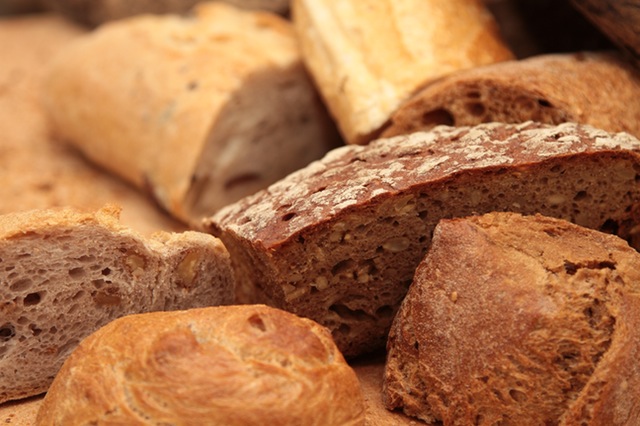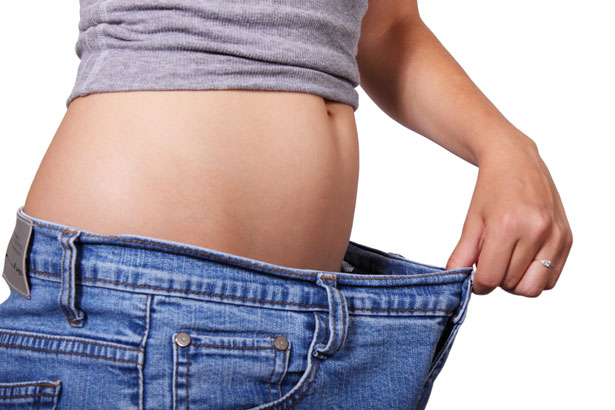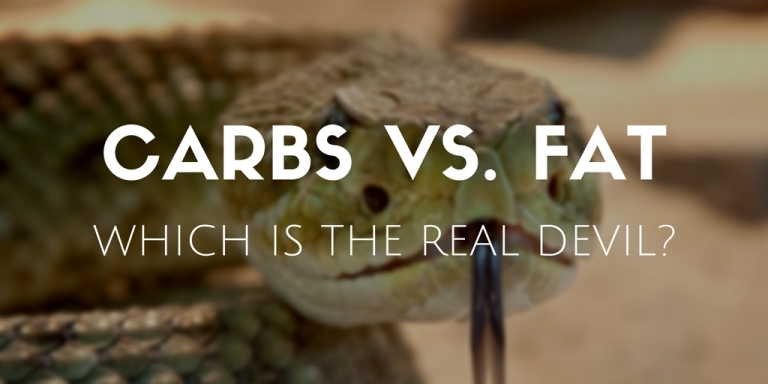While protein is talked about a lot, it’s not a very controversial subject. It’s very different for carbs and fat, the remaining macros that seem to divide the nutrition world into two camps.
You’ll hear that “carbs are evil” and that “fat is satan”. Are you curious about which one is right?
On one hand you have the Low Carb High Fat (LCHF) crew – usually proponents of eating animal protein and fat. They preach the evil of insulin resistance and the metabolic advantage of dietary fat.
On the other hand you have the high carb gang – some vegans on the 80-10-10 diet. According to these people, dietary fat is what makes you chubby and the more carbs the better.
If you think I’ll automatically side with the vegans, you’re wrong. Even though I’m a vegan athlete myself, I’m not a big fan of painting the world in black and white and so I’m going to try and bring some nuances to this dichotomy.
Let’s have a look at their respective arguments.
Making hens out of feathers #
In Sweden we say that someone’s making a hen out of a feather, when they take some tiny little thing and blow it way out of proportion. Both sides of this debate are guilty of doing this.
Finding support for one isolated biological mechanism, they use that to explain everything.
But the human body is very complex.

For example: one banan contains more or less 100 kcal. If you eat one banana per day, that’s 365 * 100 = 36’500 kcal per year. Just from eating banana, you’d put on more than 5 kilos per year.
Oh my god! Bananas are evil!
Or maybe we just made a hen out of a feather.
If this really was the case, if bananas truly were such a satanic fruit, wouldn’t we see fat people everywhere, peeling that yellow death? I can’t recall a single time that’s happened.
See the forest for the trees #
So, yes, we could look at the details and the various models of explanations. How insulin resistance decreases lipolysis, how the metabolic advantage overturns the caloric model, or how inefficient the de novo lipogenesis process is at converting carbs to fat.
Then we could theorize about how this might affect all the other mechanisms and processes, before finally declaring that our favorite cog wheel is the one that actually turns the whole machine.
Doesn’t that seem backwards to you though? Wouldn’t it make more sense to start by proving that our initial hypothesis – “fat/carbs makes you fat” – is actually accurate? Only then would it make sense to drill down to find the mechanisms that leads to this result.
Else it’d be like running around with conflicting theories on why the sky is red or green, without ever stopping to look up and see that it’s actually blue.
So first let’s establish that it’s one way or another.
So which is best? Carbs or fat? #
To answer this, once and for all, we turn to science. Not any science though – but quality science.

We can’t use epidemiological studies – that follow a large group of people in their everyday life. They can’t isolate one causation, but only offer a huge list of possible correlations to be further investigated.
One popular argument from the low-fat group is that the Chinese eat lots of carbs but still maintain a low BMI. Epidemiological studies can show us that, but they can’t explain whether it’s because the Chinese eat more unrefined, brown rice, if it’s because they are more active than people in the west, or if it’s because they speak Chinese.
Also, people can’t be trusted1. In study after study we’re found to overestimate the amount of calories we burn and underestimate the amount we consume. Not because we’re devious but because it’s in our nature – we really want to be good and so paint a picture of us being good.
That’s why metabolic wards are used, where test subjects are put in a fully controlled environment, with no external influence. Then we can be sure it’s the food we give them that’s causing X and Y and it’s not because aunt May happened to come by with some slices of cherry pie.
Three such well controlled studies are relevant for our topic.
First study #
The first one is from 1977, by Lewis SB et al2.
Ten obese men were placed in a metabolic ward for two weeks and given a low calorie, liquid formula with 20% energy from protein and either 70% from fat and 10% from carbs (10-70-20), or vice versa (70-10-20).
The difference in weight loss between the groups were initially bigger in the low-carb group but as the subjects returned to their maintenance diet, the low-carb group immediately gained a kilo of weight while the low-fat group remained the same.
The conclusion was that the initial difference in weight loss was only due to liquid retention.
Carbs bind more water in your body. The morning after a big bowl of pasta, your scale might show that you’ve gained weight. This is just water, it won’t make fat, and it will go away.
Both groups lost the same amount of fat. No difference.
Second study #
The second one is from 1992, by Leibel RL et al3.
Sixteen people were studied over an average of 33 days and, again, were fed a liquid diet with varying composition. 15% of energy came from protein and either 15%, 40%, 45%, 75%, 80%, or 85% from carbs and the remaining from fat.
Even with extreme changes (0% to 70% of energy from fat) there was no detectable evidence of significant variation in energy need.
Third study #
The final study is from 1996, by Golay A et al4.
43 obese people were studied over six weeks and given a very low calorie diet (1000 kcal per day), consisting of either 32% protein, 53% fat, and 15% carbs (53-15-32), or 29% protein, 26% fat, and 45% carbs (26-45-29).
Both groups lost significant amounts of body fat but no difference could be found between the groups.
The results of this study showed that it was energy intake, not nutrient composition, that determined weight loss in response to low-energy diets over a short time period.
There’s your answer. Carbs vs fat – it does not matter.
What does matter? #
If carbs vs fat doesn’t matter, then how come you managed to drop two sizes with your new diet?

First you need to realize that your body is a reflection of your lifestyle. If you live like an athlete you’ll look like an athlete, but live like a bum and you’ll look like one too.
Any change to your lifestyle will change your body accordingly and this is what diets do – they change your lifestyle.
Even with diets where you’re “free to eat whatever you want”, there are still many restrictions. If you’re on a low-carb diet you won’t stuff your face with cake on the coffee break at work and if you’re on a low-fat diet you won’t have any greasy pizzas for dinner.
All these small exclusions combined make for some very powerful habits.
Fourth study #
One last study to make my point, from 2005 by Dansinger ML et al5.
A total of 160 overweight subjects were randomly assigned to either the Atkins (low-carb), Zone (macro balance), Weight Waters (calorie restriction), or Ornish (low-fat) diet.
After two months the subjects reported on their own dietary adherence and after a year they were measured for changes in weight, cholesterol, blood pressure and glucose.
Which group was the most successful? Neither of them!
Overall dietary adherence rates were low, although increased adherence was associated with greater weight loss and cardiac risk factor reductions for each diet group.
The best predictor for success in losing weight and improving health was adherence to diet. The better the subjects followed their diet, the better their results were. The specific diet didn’t matter.
What about ME?! #
Some people will claim that in their special case, natural laws are turned upside down and all common knowledge can be thrown to the wind.
Sorry to break it to you, but you’re not a beautiful and unique nutritional snowflake.
If you believe your body works better with carbs or fat, I’d like to offer three explanations that are much more likely to be true:
Your body changes to become more efficient at using the energy it’s given2. If you eat a lot of carbs you’ll become better at using carbs, and vice versa for fat.
Oats are high on carbs but so are cupcakes. Avocado is high on fat but so are french fries. Food quality matters and if you’re comparing, you should be honest with this aspect.
If you’re married to the idea that diet X is the best thing in the world, you’re more likely to stick to it. Higher adherence equals better results and so you have a self-fulfilling prophecy.
Of course there are exceptions but these are so rare they should never be the go-to explanation.
What diet works best for you is the one that you can stick to the longest. It doesn’t matter if it’s low-fat, high-protein, or medium-carbs. If you can keep at it, you’ll see results.
The one you have the best adherence to is of course personal. And it can change!
So by all means, go hardcore in either direction if you want. But remember that you can always go full reverse if you want and what works for you doesn’t necessarily work for someone else.
- Self-report-based estimates of energy intake offer an inadequate basis for scientific conclusions.↩
- Effect of diet composition on metabolic adaptations to hypocaloric nutrition: comparison of high carbohydrate and high fat isocaloric diets.↩
- Energy intake required to maintain body weight is not affected by wide variation in diet composition.↩
- Similar weight loss with low- or high-carbohydrate diets.↩
- Comparison of the Atkins, Ornish, Weight Watchers, and Zone diets for weight loss and heart disease risk reduction: a randomized trial.↩



